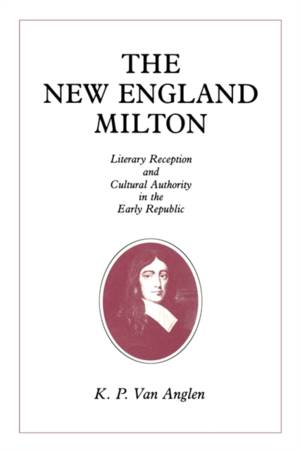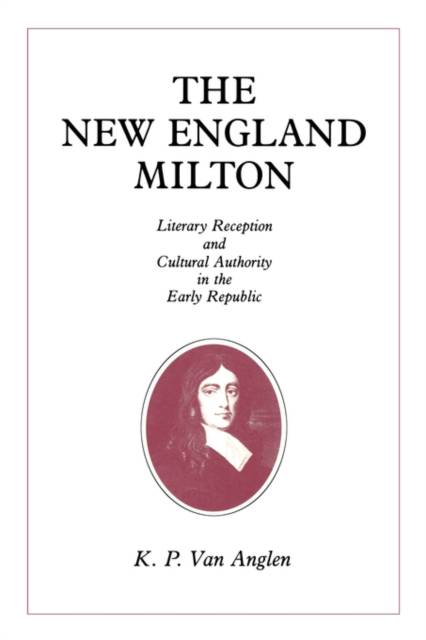
- Retrait gratuit dans votre magasin Club
- 7.000.000 titres dans notre catalogue
- Payer en toute sécurité
- Toujours un magasin près de chez vous
- Retrait gratuit dans votre magasin Club
- 7.000.0000 titres dans notre catalogue
- Payer en toute sécurité
- Toujours un magasin près de chez vous
The New England Milton
Literary Reception and Cultural Authority in the Early Republic
Kevin Van AnglenDescription
The New England Milton concentrates on the poet's place in the writings of the Unitarians and the Transcendentalists, especially Emerson, Thoreau, William Ellery Channing, Jones Very, Margaret Fuller, and Theodore Parker, and demonstrates that his reception by both groups was a function of their response as members of the New England elite to older and broader sociopolitical tensions in Yankee culture as it underwent the process of modernization. For Milton and his writings (particularly Paradise Lost) were themselves early manifestations of the continuing crisis of authority that later afflicted the dominant class and professions in Boston; and so, the Unitarian Milton, like the Milton of Emerson's lectures or Thoreau's Walden, quite naturally became the vehicle for literary attempts by these authors to resolve the ideological contradictions they had inherited from the Puritan past.
Spécifications
Parties prenantes
- Auteur(s) :
- Editeur:
Contenu
- Nombre de pages :
- 272
- Langue:
- Anglais
Caractéristiques
- EAN:
- 9780271028279
- Date de parution :
- 15-04-93
- Format:
- Livre broché
- Format numérique:
- Trade paperback (VS)
- Dimensions :
- 152 mm x 229 mm
- Poids :
- 408 g

Les avis
Nous publions uniquement les avis qui respectent les conditions requises. Consultez nos conditions pour les avis.






